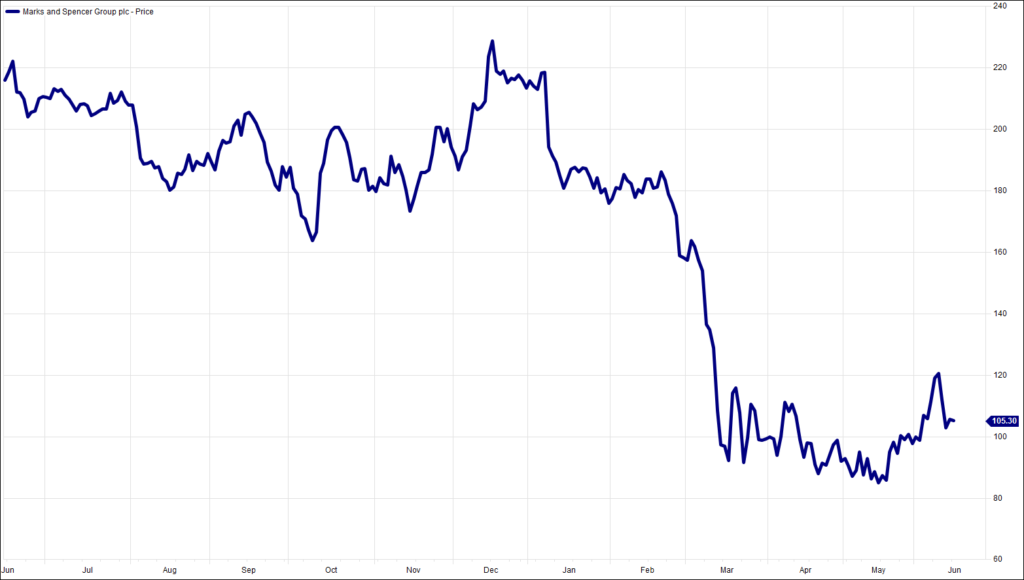
Today the non-essential shops may reopen. The issue of essentiality is undoubtedly subjective, but this is supposed to be a step in the right direction, getting the economy back on track, greasing the wheels of commerce.
It would be unfair to dispute whether it actually does any economic good to buy an even more discounted outfit from Primark for a holiday that is not going to happen. The queues reported from the nation’s favourite source of inexpensive clothing are symptoms of the same issues as the fisticuffs over Churchill. Lockdown has created a pressure pot of steam that needs to be let off. For some, this will be hours spent in socially-distanced queues seeking the solace of retail therapy. For others, it will be the chance for a good fight.
It is the same phenomenon that I would argue is broadening the Black Lives Matter protests into such widespread expressions of dis-satisfaction with authority and perceived injustice. Lockdown has concentrated and amplified many emotions and what we are seeing around the world is the explosive venting of some of these.
What is to be done? In America, it is to sack a couple of police chiefs. Here, we open the shops, restart the football season and probably shrink the two metre rule in order to let the pubs join the party.
Doubtless everyone will have seen last week’s news that the UK’s economy shrank by a fifth in April. 20.4% to be precise. The previous monthly record was March’s 5.8%. Put the two of these together, and the economy at the start of May was operating at 75% of the level of the end of February. The numbers will change – the actual drop could be possibly 5% better or worse – but the precise outcome is irrelevant. This is the greatest economic mess ever.
My earlier musings about the global protests, marches and riots were less about whether any good will ever come from them and more with the growing probability of a second wave of corona infections. The early signs are that the easings of the lockdowns is coinciding with an uptick in infections. And it is this that matters most to financial markets.
Those of us fortunate enough to work in the world of finance and investment are extraordinarily privileged. We can easily work from home, our companies will provide computers, laptops, video streaming services, and padded chairs. We can order our deliveries from Ocado, our gourmet takeaways from Deliveroo, our farm shops still have locally and sustainably sourced organic venison burgers. We have very comfortable bubbles from which to ride out the COVID crisis.
OK, most of the previous paragraph is unfair, but it is descriptive licence to illustrate the point. Equity markets had roared upwards since March, propelled by the beliefs that not only would economies recover very quickly from this hiccup, but also that COVID-19 was even enhancing the global domination of the American technology giants.
Last week, the evidence of a second wave of infections finally hit home. The dramatic fall in share prices on Thursday was an overdue reminder that markets have been, crudely, winging it. A second wave of infections featured in too few people’s reasoning. It was too inconvenient, like the hairy aunt shut away in the towers of Glamis Castle.
We would not pretend that we know whether or not the UK, or anywhere else, will have this second wave. The issues are that the large scale loosening of lockdowns, as illustrated by the marches and protests, makes it much more likely. Equally, we do not know what the reaction of governments will be should the wave happen; will it even be possible to re-impose the extraordinary restrictions on long-held personal liberties?
It is one of the oldest clichés of investment that markets like certainty. With lockdown, everyone knew where they stood. The changing of the rules means that degree of certainty has gone. Instead, we have entered a new phase of experiments. Markets will be nervous, skittish and unsettled. In investment jargon, they will be ‘volatile’. They are untrustworthy and we remain quite content to keep our portfolios sensibly cautious.
Tina Turner, so it seems, is even more popular than 10cc and well done to the many who knew that we were on the city limit of Nutbush. Today, ten years later on (so 1983): “Every now and then I get a little bit lonely…”?
Chart of the Week:
Marks & Spencer, past 12 months.

HA804/259
All charts and data sourced from FactSet
Jim Wood-Smith – CIO Private Clients & Head of Research

Hawksmoor Investment Management Limited is authorised and regulated by the Financial Conduct Authority (www.fca.org.uk) with its registered office at 2nd Floor Stratus House, Emperor Way, Exeter Business Park, Exeter, Devon EX1 3QS. This document does not constitute an offer or invitation to any person in respect of the securities or funds described, nor should its content be interpreted as investment or tax advice for which you should consult your independent financial adviser and or accountant. The information and opinions it contains have been compiled or arrived at from sources believed to be reliable at the time and are given in good faith, but no representation is made as to their accuracy, completeness or correctness. The editorial content is the personal opinion of Jim Wood-Smith, CIO Private Clients and Head of Research. Other opinions expressed in this document, whether in general or both on the performance of individual securities and in a wider economic context, represent the views of Hawksmoor at the time of preparation and may be subject to change. Past performance is not a guide to future performance. The value of an investment and any income from it can fall as well as rise as a result of market and currency fluctuations. You may not get back the amount you originally invested. Currency exchange rates may affect the value of investments.
